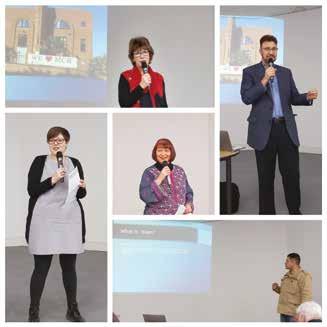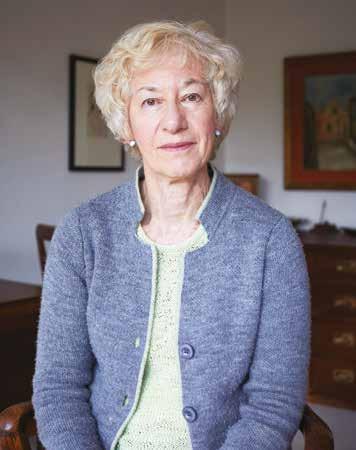
1 minute read
TOGETHER AGAIN
Muslim Jewish Forum of Greater Manchester held its annual iftar in partnership with Khizra Mosque for the first time in three years.
Returning from the pandemic, the iftar by the Muslim Jewish Forum of Greater Manchester proved to be The Forum's largest ever attendance with over 50 attendees. The Forum’s Muslim Co-Chair, Mohammed Amin, welcomed the guests while Jewish Co-Chair Councillor, Heather Fletcher, was compere for the evening. The event hosted four speakers, Diane Hawkins, Azfal Khan, Sajjad Amin, and Rabbi Robyn Ashworth-Steen and after the formal speeches the guests were treated to a delicious meal provided by Khizra Mosque.

Rabbi Robyn Ashworth-Steen spoke about fasting in Judaism. She reflected that, unlike Islam, Judaism does not have a month of fasting. Instead, Jews fast on solemn festivals. Of these, Yom Kippur, the Day of Atonement on the tenth day of the first month of the Jewish calendar is the most important, with a 25-hour fasting that, like Islam, excludes both eating and drinking, as well as some other activities.
Jackie Harrison, a Jewish member of the Forum’s Executive Committee said: "This was a wonderful evening of unity and friendship with delicious food and hospitality from Khizra Mosque."
Jackie’s mother rarely talked about what had happened during the war. It was only after her uncle and aunt had died that Jackie inherited an archive of material relating to the family back in Germany. Jackie’s mother had managed to get out of Berlin in 1936, following her brother and sister who had already escaped. But Jackie’s grandparents had remained.
One night, on a whim, Jackie searched her grandparents’ names on the web. What she found felt like a sign: four days earlier two Stolpersteine (stumble stones) had been laid in their names outside the house in Berlin where they had once lived. Each listed their name, year of birth, date of deportation to Theresienstadt, and date of their murder by the Nazis.

“The book is about me getting to know these grandparents that I never knew,” Jackie explained. “It was a gradual realisation in childhood that they had not met a normal death. A lot of my generation were brought up in the aftershock of the Second World War and the Holocaust, and our parents wanted a new life and to just start again, so it wasn’t talked about. When I found out about these memorials to my grandparents, that was really the trigger that set the whole thing off. Writing the book was also kind of one in the eye for the Nazis.









